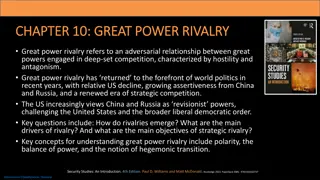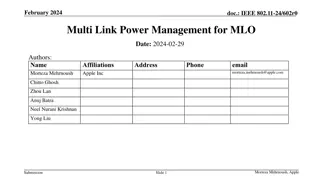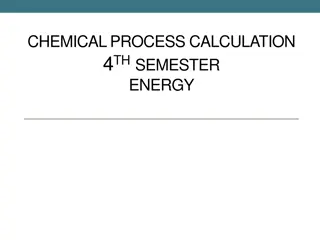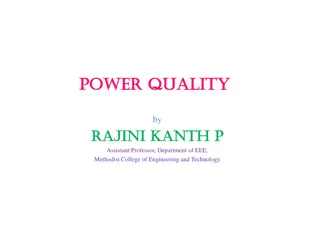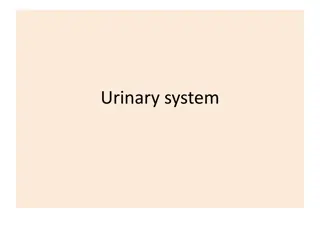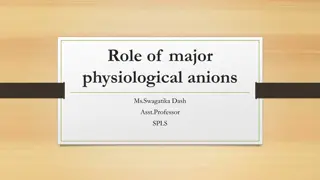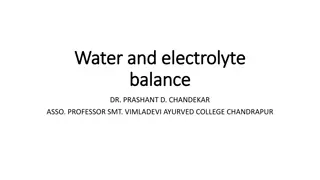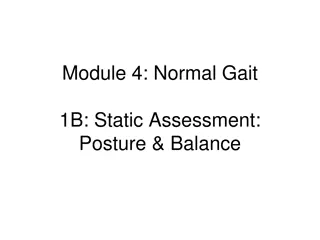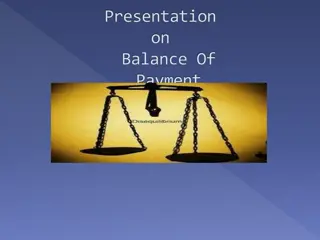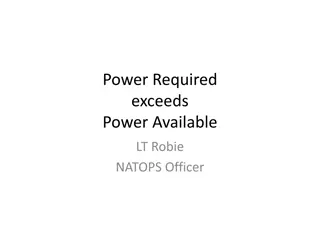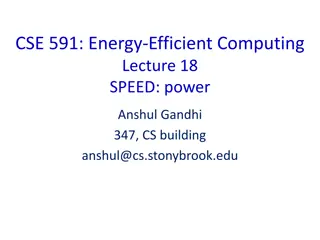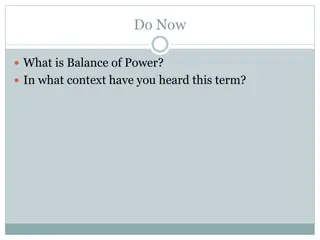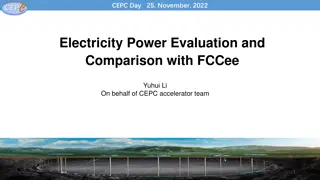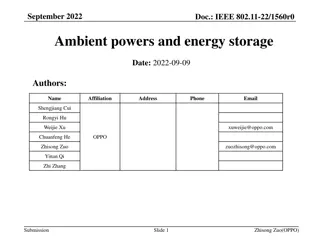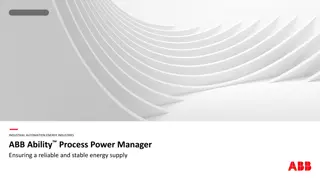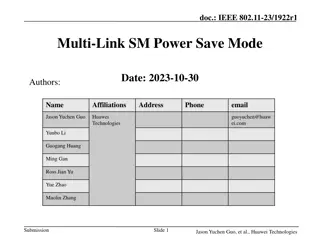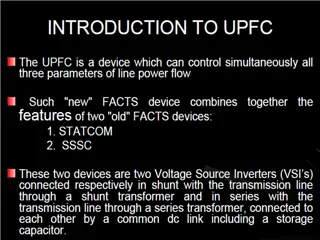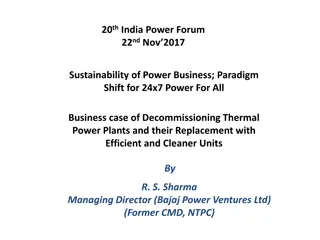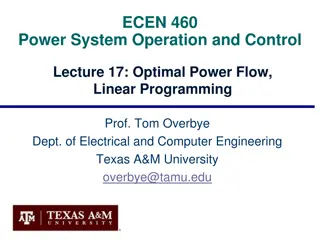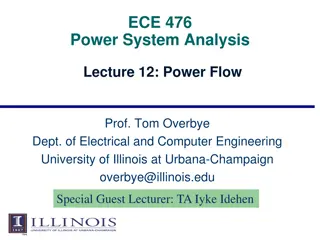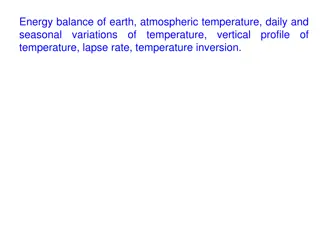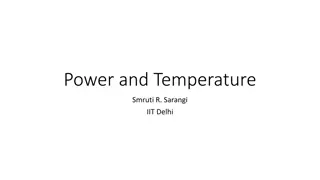Social Balance Theory and Network Interactions
Explore social balance theory and its application in network interactions, based on chapters 10 and 11 of "Networks, Crowds, and Markets" by D. Easley and J. Kleinberg. Learn about global balance index, exchange cost, social power, network building algorithm, random and scale-free networks, matching
3 views • 27 slides
Rashford's Exclusion Raises Questions as Southgate Navigates Delicate Balance Euro 2024
Rashford's Exclusion Raises Questions as Southgate Navigates Delicate Balance for Euro 2024\n\nhttps:\/\/blog.worldwideticketsandhospitality.com\/2024\/02\/01\/rashfords-exclusion-raises-questions-as-southgate-navigates-delicate-balance-for-euro-2024\/\n\nUEFA Euro 2024 fans from all over the world
6 views • 5 slides
Cisco Systems Fault Managed Power Portfolio Overview
Cisco Systems offers an industry-leading Fault Managed Power (FMP) patent portfolio comprising 24 active assets across seven INPADOC families. The portfolio includes patents supporting fault-managed power systems, PoE deployments, DC power distribution, DC-DC conversion, and HVDC connectors. The FMP
4 views • 4 slides
Great Power Rivalry in World Politics: Understanding Polarity, Balance of Power, and Hegemonic Transition
Great power rivalry involves deep competition and hostility between major players like the US, China, and Russia. The concept is explored through polarity, balance of power, and hegemonic transition theories, discussing power distribution, strategies, and transitions in the international system. The
4 views • 12 slides
Improving Multi-Link Power Management Efficiency in IEEE 802.11 Networks
The document discusses challenges with per-link power mode changes in multi-link scenarios in IEEE 802.11 networks, proposing a solution for more efficient power management. It addresses issues such as latency and inefficiencies in signaling for power mode changes, introducing scheduled multi-link p
6 views • 9 slides
Understanding Power Transfer and Impedance Matching in Circuits
Exploring the concept of maximizing power transfer between a source and load through impedance matching. Learn about complex conjugates, real and magnitude of complex numbers, average power in circuits, and the importance of minimizing reflected power. Discover how incident, reflected, and delivered
3 views • 33 slides
Understanding Energy Balance in Chemical Process Calculations
Energy balance in chemical process calculations involves determining the energy requirements of a system by accounting for energy flow into and out of each unit. This includes defining terms like system and surroundings, distinguishing between open and closed systems, and understanding different pro
1 views • 19 slides
Overview of Farm Power Sources and Utilization in Agriculture
Farm power sources in agriculture include human, animal, mechanical, and renewable energy. Human power is costly but versatile, while animal power is traditional and provides manure. Mechanical power from tractors and engines is efficient. India's farm power sources reflect a mix of traditional and
0 views • 12 slides
Experience Sahaja Yoga Meditation for Self-Realization and Balance
Sahaja Yoga, a unique discovery by Shri Mataji Nirmala Devi, offers a simple technique of meditation based on awakening Kundalini, the Divine power connecting to the All-Pervading Power of God. It is the culmination of all religions, granting the experience of Self-Realization and the feeling of the
0 views • 17 slides
Understanding Off-Balance Sheet Items in Banking Activities
Off-balance sheet items refer to activities that are assets or liabilities of a company but do not appear on the balance sheet. In banking, these can include loans given to borrowers, securitization, guarantees, and other contingent facilities. Learn more about how off-balance sheet exposures impact
0 views • 6 slides
International Relations in the 18th Century: Balance of Power and Conflict
In the 18th century, international relations were influenced by the concepts of balance of power and reason of state. The Seven Years War, a major conflict of the time, was sparked by power struggles and territorial ambitions among European states. The war had significant impacts, leading to shifts
0 views • 20 slides
Understanding Balance of Power Theory in Global Politics
Balance of Power Theory in global politics emphasizes the distribution of military capability among states to prevent hegemony and maintain national security. It is a realist theory that highlights the importance of preventing any single state from dominating others. The theory discusses how stronge
1 views • 15 slides
Understanding Power Quality and Its Impact on Electrical Systems
Power quality refers to the characteristics of electrical power that drives sensitive equipment. It involves voltage and current deviations from ideal waveforms, impacting the efficiency and reliability of electrical systems. Various types of power quality phenomena exist, such as voltage variations
1 views • 16 slides
Understanding the Urinary System: Kidneys, Functions, and Structure
The urinary system, also known as the renal system, consists of the kidneys, ureters, bladder, and urethra. Each kidney contains nephrons, the functional units responsible for filtering waste and regulating blood volume, pressure, electrolytes, and pH balance. The kidneys have an extensive blood sup
0 views • 35 slides
Role of Major Physiological Anions in the Human Body
Physiological anions such as chlorides, sulphates, bicarbonate, phosphates, and electrolytes play essential roles in maintaining various functions within the body. Chloride ions help in osmotic balance, charge balance, and acid-base balance. Sulphates are important for detoxification mechanisms and
0 views • 11 slides
Understanding Water and Electrolyte Balance in the Human Body
The body's fluid compartments, including intracellular and extracellular fluids, play a crucial role in maintaining water and electrolyte balance. This balance is regulated by movements of water and electrolytes between compartments, influenced by factors like hydrostatic and osmotic pressures. Main
2 views • 18 slides
Understanding Fund Balance in School Finance
Explore the concept of fund balance in school finance through examples from Bozeman Schools. Learn how beginning balance, revenues, and expenditures affect the ending fund balance, with a system designed to maintain reserves. Delve into budgeting and actual expenditure scenarios to better comprehend
0 views • 24 slides
Local Government Finance Overview - Fiscal Year 2024/2025 Budget Insights
Explore the Fiscal Year 2024/2025 Budget details including Fund Balance, Revenue sources, Importance of a Strong Fund Balance, Fund Balance Policies, various Funds available, Revenues breakdown by types, and Actuals data for the year 2022/2023. Understand the significance of maintaining a strong Fun
0 views • 27 slides
Understanding Posture, Balance, and Gait Analysis in Human Movement
This resource delves into the static assessment of posture and balance, exploring the various inputs and control mechanisms involved in maintaining standing posture. It discusses the key factors influencing posture, such as visual, somatosensory, proprioceptive, and vestibular systems, along with mu
0 views • 51 slides
Understanding Balance of Payment (BOP) and Its Components
Balance of Payments (BOP) is a crucial accounting record detailing a country's economic transactions with the rest of the world. It encompasses exports, imports, financial transfers, and more. The BOP consists of the Current Account Balance, Capital Account Balance, and Overall BOP, reflecting the f
0 views • 17 slides
Helicopter Power Management Guidelines
Understanding the factors that can lead to power required exceeding power available in a helicopter is crucial for safe operation. Indications such as uncommanded descent, rotor droop, loss of tail rotor authority, and right yaw signal potential issues to watch out for. Knowing when such occurrences
0 views • 11 slides
Exploring Power Efficiency in Computing Systems
In this lecture series on energy-efficient computing, various concepts related to dynamic frequency scaling, power capping, power shifting, power modeling, and power measurement are discussed. The impact of power on server speed is explored, alongside strategies for improving performance within powe
0 views • 17 slides
Understanding Balance of Power in 18th Century Europe
Balance of power in 18th-century Europe was a concept where great powers aimed to maintain equilibrium to prevent one nation from becoming too powerful. This balance was evident in events like the War of the Austrian Succession and the Diplomatic Revolution of 1756, which reshaped alliances and riva
0 views • 13 slides
Comparison of Electricity Power Systems Between CEPC and FCCee
The evaluation and comparison of electricity power systems between the CEPC and FCCee accelerators reveal the power breakdowns, RF power consumption, magnet power supply, and overall power usage. Differences in power consumption for various components such as RF, magnets, and vacuum systems are high
0 views • 19 slides
Ambient Power Harvesting Technologies Overview
This document discusses various ambient power harvesting technologies such as RF energy, solar power, light, and thermal energy. RF-based energy harvesting utilizes radio waves for power transmission with potential applications in logistics, smart homes, and environmental monitoring. Solar power off
0 views • 12 slides
Power Quality Monitoring and Evaluation in Modern Energy Systems
Power quality is crucial for stable operations in energy systems. This content discusses issues in power supply, reasons for measuring power quality, consequences of bad power quality, methods for measuring power quality, and evaluation techniques for compliance reports. Tracking power quality param
0 views • 21 slides
ABB Ability Process Power Manager for Energy Industry Facilities
ABB Ability Process Power Manager offers a comprehensive solution for power management in energy industry facilities. It addresses challenges such as managing multiple power sources, minimizing downtime, enhancing safety, optimizing aging assets, and coping with margin pressures. This intelligent an
0 views • 22 slides
Power Dynamics in the Hellenistic World: A Study of Olympias of Macedon
Exploration of power dynamics in the Hellenistic world through the multidimensional exercise of power by Olympias of Macedon. The study delves into various forms of power such as reward, coercive, legitimate, referent, and expert power, shedding light on their roles in shaping leadership and influen
0 views • 20 slides
Enhancing Power Efficiency in IEEE 802.11 Multi-Link SM Power Save Mode
The document discusses how Multi-Link Operation (MLO) in IEEE 802.11be can improve throughput and reduce latency but may increase power consumption for non-AP devices. It introduces the concept of Multi-Link SM Power Save mode to optimize power usage by activating multiple links only when necessary,
0 views • 10 slides
Understanding Power Consumption in Memory-Intensive Databases
This collection of research delves into the power challenges faced by memory-intensive databases (MMDBs) and explores strategies for reducing DRAM power draw. Topics covered include the impact of hardware features on power consumption, experimental setups for analyzing power breakdown, and the effec
0 views • 13 slides
Overview of Unified Power Flow Controller (UPFC) in Power Systems
A Unified Power Flow Controller (UPFC) is a combination of a Static Synchronous Compensator (STATCOM) and a Static Synchronous Series Compensator (SSSC) interconnected via a common DC link. UPFC allows bidirectional flow of real power and provides concurrent real and reactive series line compensatio
0 views • 20 slides
Understanding Leadership and Power Dynamics
Power and leadership are interconnected concepts, with power being the measure of a person's ability to influence others. Leaders have power in various situations, but it does not necessarily mean having power over people. Effective leaders balance their use of power with knowledge and trust, knowin
0 views • 9 slides
Discussion on Sustainable Energy Solutions and Efficiency Improvements in Thermal Power Plants
The 20th India Power Forum held on 22nd November 2017 highlighted the importance of sustainability in the power business, focusing on the paradigm shift towards 24x7 power for all. Topics included decommissioning thermal power plants for more efficient and cleaner units, with insights from industry
0 views • 16 slides
Pathways Project Meeting Summary - ARIES Design Progress and Power Balance Corrections
The ASC Progress involves improving code for credibility and transparency while adding DCLL functionality. ARIES Design Nomenclature outlines ACT systems and SCLL/DCLL characteristics. Action Items progress includes completion of DCLL system code model and ongoing radial build coding. Power flow dia
0 views • 17 slides
Optimal Power Flow in Power System Operation and Control
The lecture covers Optimal Power Flow (OPF) and Linear Programming in power systems, discussing economic dispatch, contingency analysis, and constraints such as power balance, voltage setpoints, and transmission limits. Various components and constraints of OPF, as well as example solution methods,
0 views • 38 slides
Power System Analysis: Lecture on Power Flow
Lecture 12 on Power Flow Analysis in Power Systems covers the use of power balance equations when analyzing complex power consumption and generation. It explains the derivation of real power balance equations for iterative solutions in power flow analysis. The lecture highlights the need for iterati
0 views • 30 slides
Understanding Earth's Energy Balance and Temperature Variations
Earth's energy balance is crucial for maintaining atmospheric temperature and regulating daily and seasonal temperature changes. The net radiation, consisting of incoming shortwave and outgoing longwave radiation, plays a key role in this balance. Components such as sensible heat flux, latent heat o
0 views • 18 slides
Understanding Power Consumption and Temperature in Electronic Circuits
Explore the significance of power consumption in electronic circuits, focusing on reasons for high power, high temperature, and low reliability. Learn about sources of power consumption, types of power dissipation, dynamic power analysis, and the relationship between energy and power in circuits.
0 views • 30 slides
Effective Regulation of Active Power in Renewable Energy Sources
The balance between generation and load is crucial in power systems operation. Various control levels ensure this balance, from frequency control to power station planning. DER units may lack control means, but specific configurations allow for frequency and voltage control. Performance indicators a
0 views • 51 slides
Understanding Skill-Related Fitness: Physical and Emotional Aspects
Skill-related fitness encompasses both physical and emotional components, such as agility, balance, coordination, power, reaction time, and speed. Physical agility involves quick body movements, while emotional agility relates to positive responses in various situations. Physical balance requires we
0 views • 7 slides



